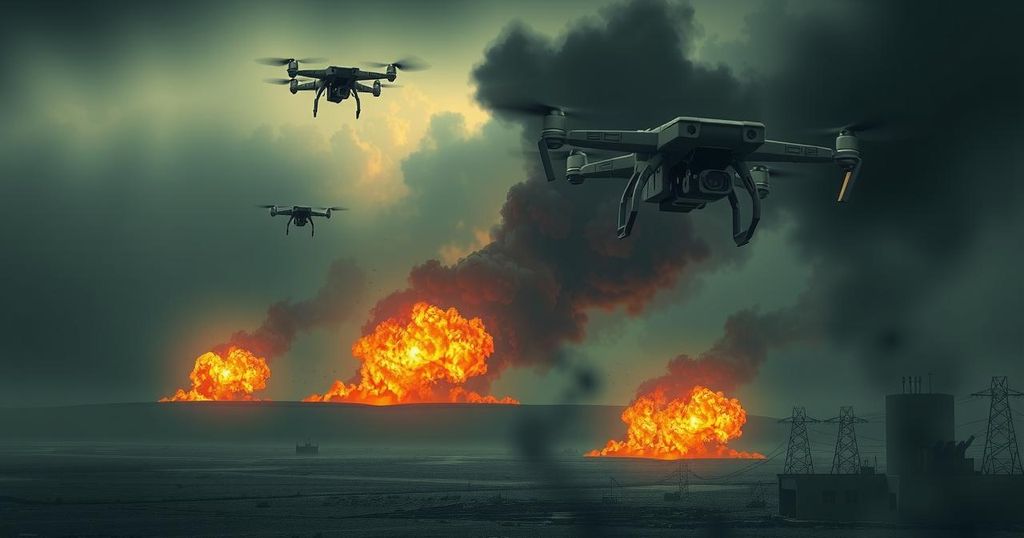North Korean Troops Support Russia in Kursk Conflict Against Ukraine

Vladimir Putin’s forces, with support from North Korean troops and Russian drones, have gained substantial ground in the Kursk region. Approximately 12,000 North Koreans have been deployed, with high casualty rates and a strong willingness to fight fiercely, often preferring death to capture. Improved training and tactics among North Korean forces, in conjunction with advanced Russian drones, complicate Ukraine’s defensive strategies and territorial ambitions.
Recent developments in the Kursk region of Russia reveal significant advances made by North Korean troops supporting Vladimir Putin’s forces against Ukraine. These North Koreans, bolstered by Russian drone units and relentless airstrikes, have gained considerable ground, taking advantage of their overwhelming numbers. Ukrainian commander Oleksii reported that their units are commonly outmatched, facing groups of 50 North Korean soldiers. Communication efforts between captured North Korean soldiers and Ukrainian investigators aim to shed light on Russia’s exploitation of these troops, who have operated within an information vacuum since childhood.
Since January, an estimated 12,000 North Korean soldiers have been deployed in Russia, resulting in over 300 fatalities and more than 2,700 injuries. The casualties following recent offensives may significantly exceed these figures. The control of Russian territory in Kursk is strategically vital for Ukraine as it seeks to negotiate territorial losses in the Donbas region and divert Russian focus away from the Ukrainian frontline. Kyiv had previously secured approximately 200 square miles of land during surprise offensives, complicating Moscow’s military strategies.
The recent involvement of North Koreans poses a challenge for President Volodymyr Zelenskyy, particularly with the recent cessation of U.S. financial and military aid. The reinforcements from Pyongyang have reportedly allowed Russia to reclaim over 60% of the territory once held by Ukraine.
Reports indicate a troubling aspect of North Korean military culture, where captured soldiers may commit suicide rather than risk execution. Defector Ryu Seong-hyeon recounted the extreme shame associated with capture, motivating North Koreans to fight tenaciously. The fear of execution has led to a fierce willingness to sacrifice their lives rather than face imprisonment.
Amidst claims that North Korean troops struggle with modern warfare techniques, there are reports of improved training in anticipation of drone encounters. Ukrainian forces have noted enhanced coordination between North Korean troops, artillery units, and elite Russian drone teams. This change in tactics was demonstrated during an assault near Kurylvka, where North Korean forces successfully penetrated Ukrainian defenses.
The Russians have begun utilizing advanced fibre-optic drones, which offer greater resilience against jamming compared to conventional drones. This technological advantage has allowed the North Korean and Russian forces to disrupt supply lines crucial for Ukraine, specifically the road linking Russia’s Sudzha region to Ukraine.
The ongoing conflict in Kursk underscores the significant implications of North Korean troops entering the fray, backed by Russian support. The convergence of North Korean suicide missions, modern drone warfare, and strategic territorial dynamics presents a complex and escalating challenge for Ukraine. President Zelenskyy’s administration must navigate these developments carefully, especially in light of changing foreign aid circumstances. As the situation intensifies, continued monitoring and analysis will be essential to understand the broader consequences of this military collaboration.
Original Source: www.theweek.in







